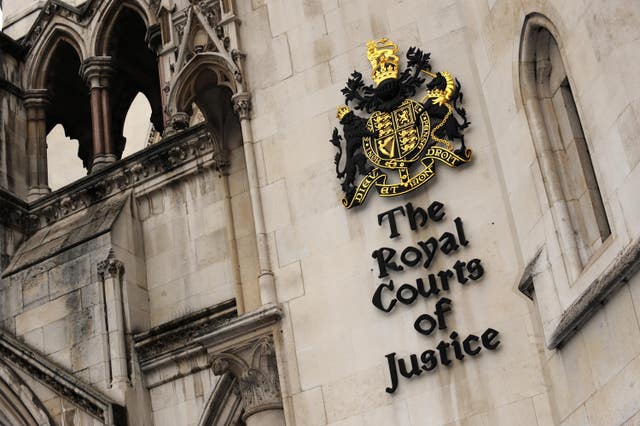Puberty blocker trial expected to begin in early 2025
Such medication has been banned at NHS gender identity clinics since March.

A trial into the use of puberty blockers is expected to begin early next year, NHS England said, as it set out its plans for changes to children’s gender services.
Children referred into new gender clinics – of which there are expected to be up to eight across England by 2026 – will be routinely asked about taking part in the trial, as part of discussions with health specialists.
NHS England had previously expected to have a study into the use of puberty blockers – which pause the physical changes of puberty such as breast development or facial hair – in place by December 2024.

The first stage of the trial – recruiting participants in England and Wales – is now instead expected to begin in early 2025, subject to academic approval, meaning children involved will be able to start accessing blockers at that stage.
The NHS announced in March that children would no longer be prescribed puberty blockers at gender identity clinics, with the then-Conservative government saying this would help ensure care is based on evidence and is in the “best interests of the child”.
In May a ban on puberty blockers was introduced by that government with emergency legislation, preventing the prescription of the medication from European or private prescribers and restricting NHS provision to within clinical trials.
A challenge to that ruling, brought by campaigners who said they were concerned for the safety and welfare of young trans people in the UK, failed last month when the High Court ruled the ban was lawful.
The new clinical trial will consider the potential benefits and harms of puberty suppressing hormones for children and young people.
The Cass Review had recommended that consent should “routinely be sought” for all children and young people for enrolment in a research study with follow-up into adulthood.
It is understood that NSHE’s plans are for a discussion of the clinical trial to be a standard requirement with every child patient, ensuring it is fully integrated into young people’s gender care.
Numbers have not been set out for minimum participants – both those receiving puberty blockers and not receiving them – but they are expected to be “substantial”.
Health officials believe that, due to the expected large size of the trial, which will study a population under one health system, the results into what has become a controversial issue will be awaited with interest worldwide.
In a piece for the British Medical Journal (BMJ) on publication of her report in April, Dr Hilary Cass concluded that the pillars of gender medicine are “built on shaky foundations”, with evidence found to be severely lacking on the impacts of puberty blockers and hormone treatments.
The trial is being overseen by the National Research Oversight Board in partnership with the National Institute for Health and Care Research (NIHR).
The research is co-sponsored by King’s College London and the South London and Maudsley NHS Foundation Trust.
In further detail on Wednesday, NHSE said there will be a new clinical policy on the use of gender-affirming hormones – testosterone and oestrogen – some time between August 2025 and July 2026.
NHSE had already announced a review into its policy on hormones after the Cass Review advised “extreme caution” when it comes to prescribing them before someone has turned 18.





